Affiliate marketing is one of the most profitable ways to make money online. Promoting existing products and services on your website can make commission earnings for every sale succesfully generated from your affiliate links.
This approach is possible through search engine optimisation (SEO). It aims to help your website rank on top of search engine results pages (SERPs) for the best and most relevant search terms your target audience uses to find your affiliate marketing content. Understanding this importance empowers you with the knowledge to optimise your website effectively.
But here's a problem: affiliate marketing may seem daunting, especially with the current state of Google search. Lots of authoritative websites have dropped their search traffic without rhyme or reason. However, that doesn't mean it's impossible to achieve affiliate marketing success via SEO.
It's all about finding the right niche, using a keyword research tool, and developing a systematic process to find keyword suggestions. From here, you can successfully rank in Google and make money in this process, just like profitable affiliate marketers before you.
Thankfully, you're in the right place. So, let's get right into it!
Understanding the Role of Keyword Research in Affiliate Marketing
Keyword research is the bedrock of every successful SEO campaign - your choice of keywords determines how easy it is to find your website on Google search and how many you can convert with your content.
This stringent research process provides invaluable insights into your target audience's needs, desires, and pain points. This knowledge allows you to identify the most relevant keywords to optimise for your site, allowing you to create content that resonates deeply with your audience and addresses their queries and concerns.
We'll explore the different aspects of keyword research in relation to affiliate marketing (user intent, niche validation, and everything else in between). For now, let's begin with the most vital aspect of launching an affiliate marketing campaign for search engine optimization.
Choosing the Right Niche for Affiliate Marketing
Having the best possible niche for your affiliate website determines how much money you'll generate from it based on your target keywords. To do this, you must consider the following factors:
Money vs. Love
Ah, the age-old question.
When it comes to niche selection, you want to choose a niche that genuinely interests you. After all, you'll be creating a lot of content around this topic, so it helps if you're passionate about it. Your enthusiasm will shine through in your content, making it more engaging and authentic for your audience.
On the other hand, just because you love the niche doesn't mean there's money to be made with it. Maybe there are no products or services you can sell from creators and make a commission from, limiting your chances of making money.
So, which one should you choose between the two, then?
Honestly, there's no right or wrong answer here. You may choose a topic that you're not really interested in but because it has the best earnings potential from the available affiliate programs.
At the same time, you can choose a topic you're truly passionate about. This led you to create lots of authoritative content in record time, allowing you to achieve high search engine rankings and generate more affiliate commissions based on volume.
Research Affiliate Programs and Networks
So, before conducting niche keyword research, check for affiliate programs you can join and promote its products, digital or physical. Go to affiliate networks and search for products you can apply for, such as CJ, ShareASale, Avangate, and others.
You can also search for affiliate programs on Google. Type in "'niche' affiliate program" (replace "niche" with your niche). For example, web hosting platforms have their own affiliate programs that you can join.
When doing this, check the affiliate terms, i.e. how much you will get for each successful sale, cookie duration, how you can promote the products, etc. Here's an example of Namecheap's affiliate program, which is done through Impact.com or CJ.
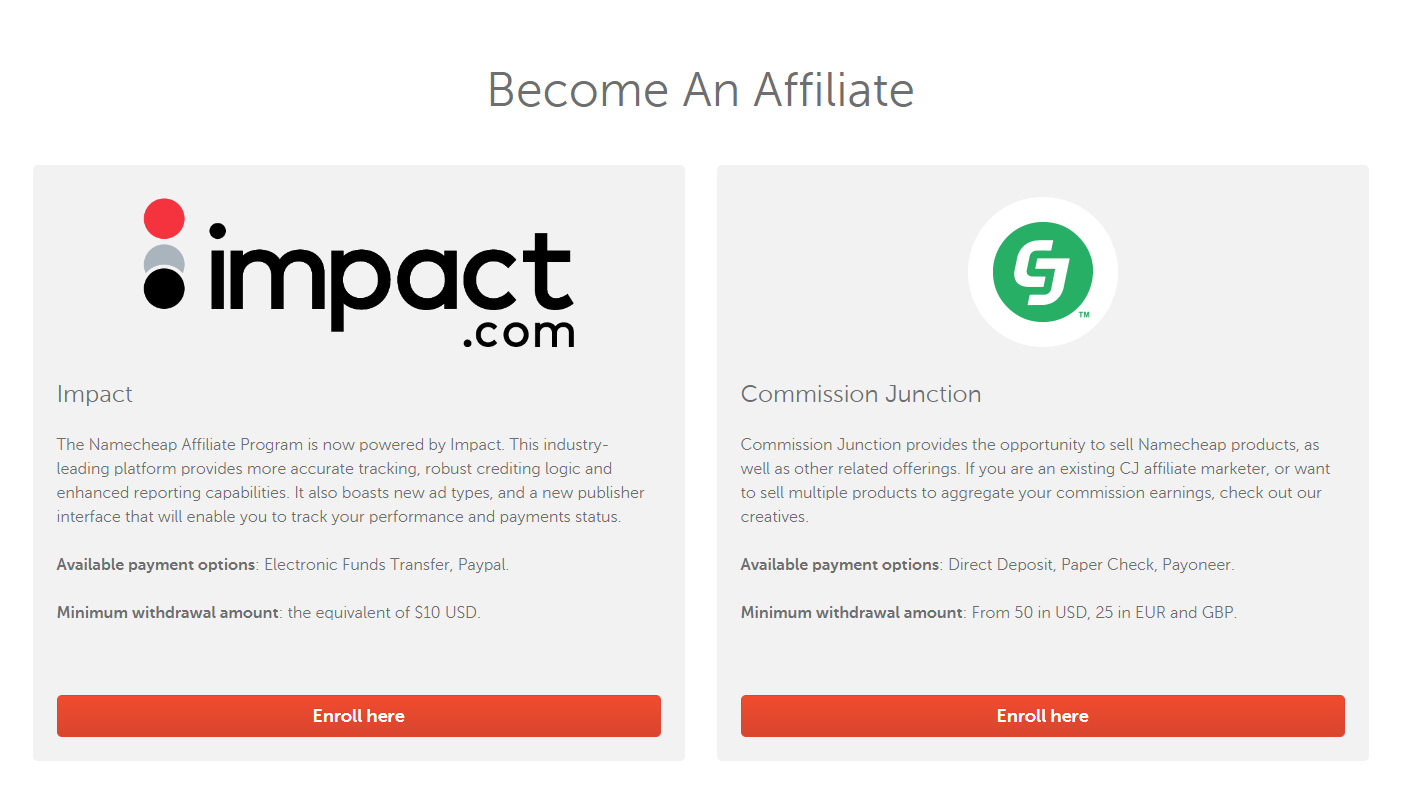
Ideally, you want a shortlist of niches that pay well, and you're interested in (if not passionate about). Once done, proceed to the next step.
Validate Affiliate Marketing Niche
From here, verify your chosen niche using a keyword tool. There are lots of keyword research tools to choose from, each with its strengths. But for this post, let's stick with Ahrefs, which offers in-depth keyword research features.
Its Keywords Explorer tool provides a wealth of data, including search volume, keyword difficulty, and estimated click-through rates.
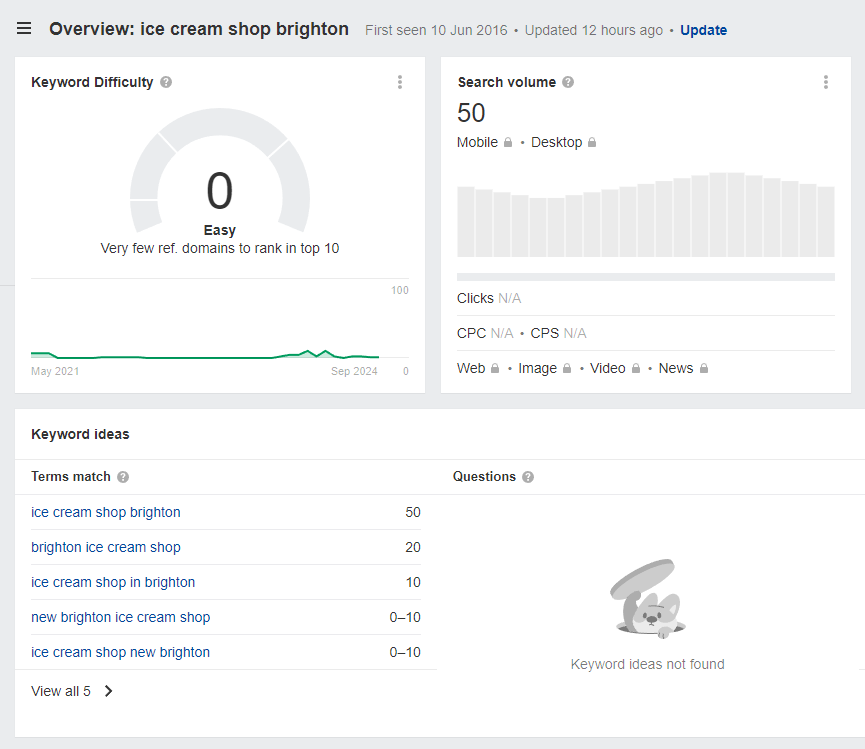
Ahrefs excels at showing you phrase match keywords, related terms, and what keywords your competitors are ranking for, giving you valuable insights into your market.
You can also use Google Keyword Planner for this step, as it's free. However, you have to set up a Google Ads account to make this work properly. Once you have done this, you can see the range of search volume keywords each of the word ideas has.
Keep in mind that this is a general keyword overview of the niche. We're not here to actually find affiliate marketing keywords to use for your eventual website; just the number of ideas, the search volume of each, and how difficult to rank for each.
Basically, the idea here is to help you get guidance from your niche keyword research and make an informed decision. It enables you to identify profitable areas within broader markets, gauge the level of interest in different topics, understand the competition landscape, and spot potential opportunities that others might have overlooked.
How to Conduct Niche Keyword Research
From here, you'll want to dig deep into your list of affiliate marketing keywords that people are actively searching for.
First-time site owners should focus on identifying long-tail keywords. These are more specific, usually longer phrases that have lower search volume but often higher conversion potential.
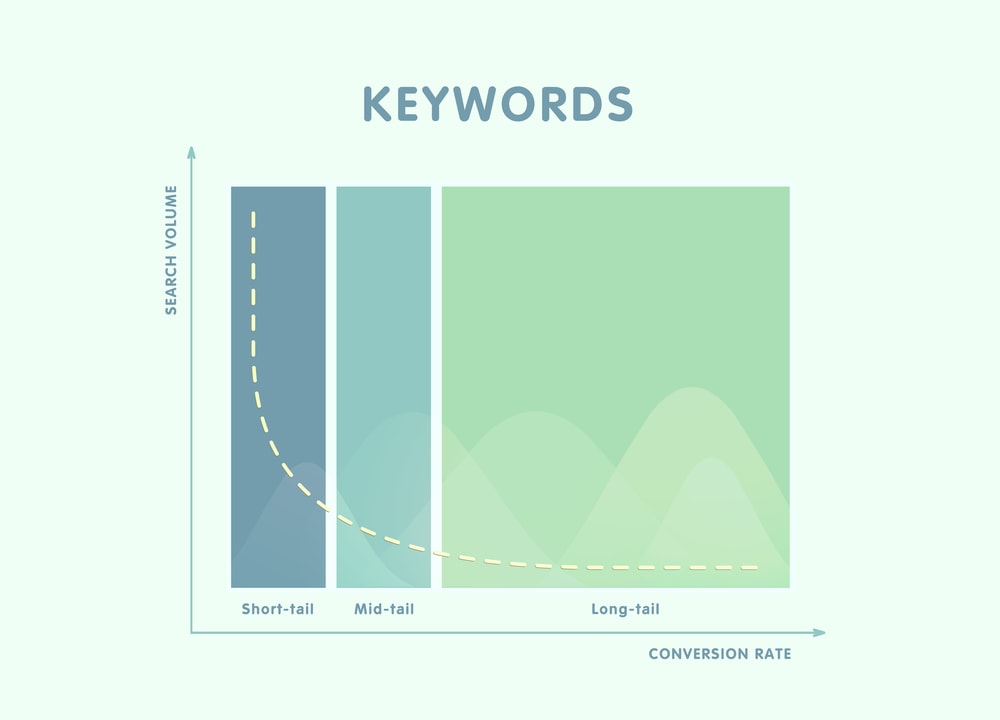
To put it simply, instead of the broad term' dog food,' you want to identify the kind of dog food you're selling and the type. A long-tail keyword might be 'best grain-free dog food for puppies'.
When compiling your list of potential keywords, it's crucial to analyse search volume. Look at the monthly searches of each keyword and ensure there's enough interest in it.
However, don't be deterred by lower search volumes for long-tail keywords—remember, they often have higher conversion rates.
Alongside search volume, assess the keyword difficulty. This metric gives you an idea of how hard it would be to rank for a particular keyword. As a newcomer to the market, it's wise to focus on keywords with lower difficulty scores.
Affiliate Keyword Intent
As mentioned earlier, you need to balance content that aims to educate (informational) and those that will help you sell affiliate products (commercial). Let's the both intents and how to optimise for each.
Informational Search Intent
These keyword type is when a person merely wants to learn about a topic related to their search query.
A popular type of informational keyword is question-based, which usually begins with words like "how to," "what is," or "why does." Question-based keywords are valuable because they often indicate a user who is seeking information, and providing that information allows you to build trust and potentially lead to a sale.
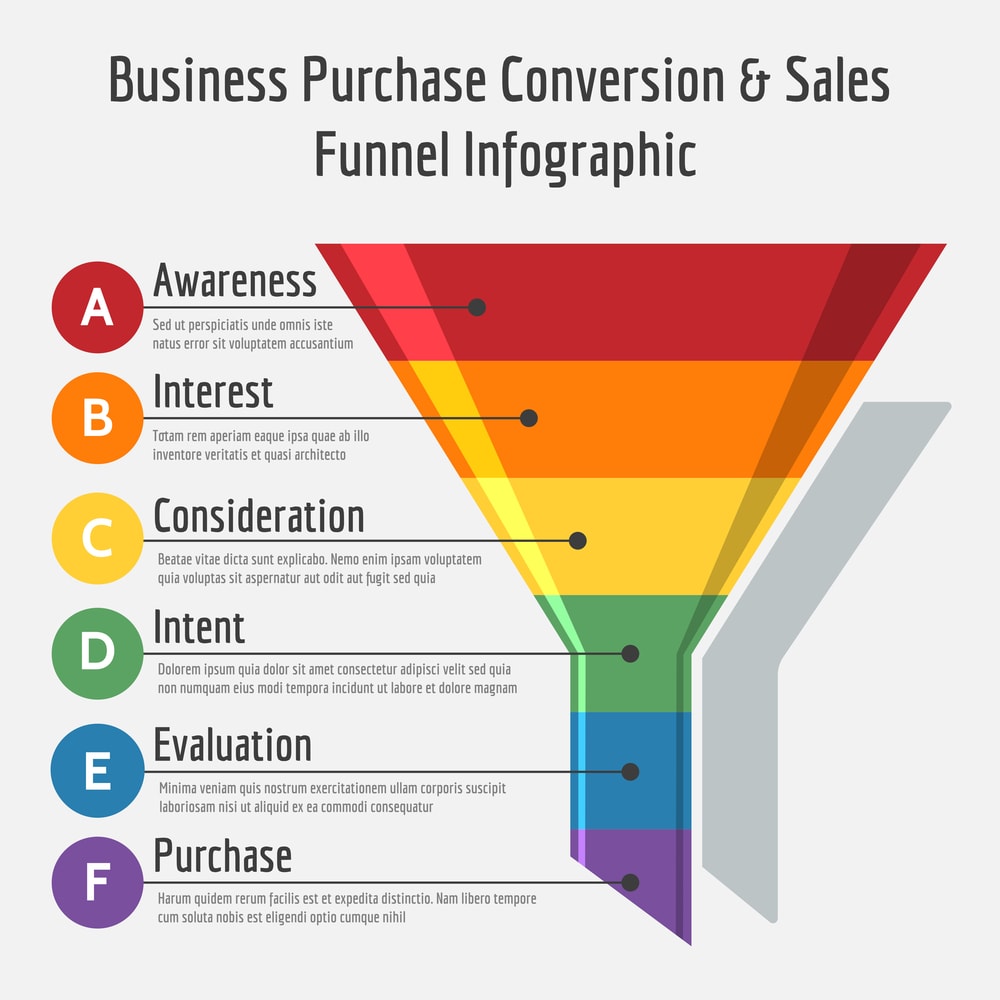
When incorporating question-based keywords into your strategy, think about the questions our potential customers might be asking at different stages of their buyer's journey.
In this case, find keywords that will help fill out your sales funnel to ensure that people who search for your informational (or top-of-the-funnel) content will lead them to read your commercial (or bottom-of-the-funnel) content. For instance, if your affiliate marketing business is about meal preparation, you need to organise your content according to these stages:
Awareness Stage (ToFu content)
-
Healthy meal prep ideas
-
What is meal prepping?
-
Easy meal prep for beginners
Consideration Stage (MoFu content)
-
Meal prep delivery services
-
Best meal prep containers
-
Meal prep kits for families
Decision Stage (BFu content)
-
Best meal prep delivery service near me
-
Buy meal prep kits online
-
Affordable meal prep services
Question-based content also lends itself well to formats like FAQs, which can be great for SEO. You can create a single, authoritative page that answers multiple related questions, ranking for several keywords at once.
Commercial Search Intent
The most profitable keywords or terms are the ones with the highest intention of getting people to convert. These are phrases containing the word "best", "review", "buy", or "top".
For instance, someone searching for "best smartphone under £500" is likely closer to purchasing someone searching for "smartphone features".
Look for keywords that include specific product names or models as well. Users who search for 'iPhone 12 Pro Max review' are looking to learn more about hte phone and whether to buy it or not. If your post makes a great case to get iPhone 12 Pro Max, visitors are highly likely to link on your afffiliate link to purchase the device.
Aside from Ahrefs, you can use Semrush Keyword Magic Tool. It not only finds related keywords from your seed keywords to topics for your affiliate site but also identifies the intent of each search term.
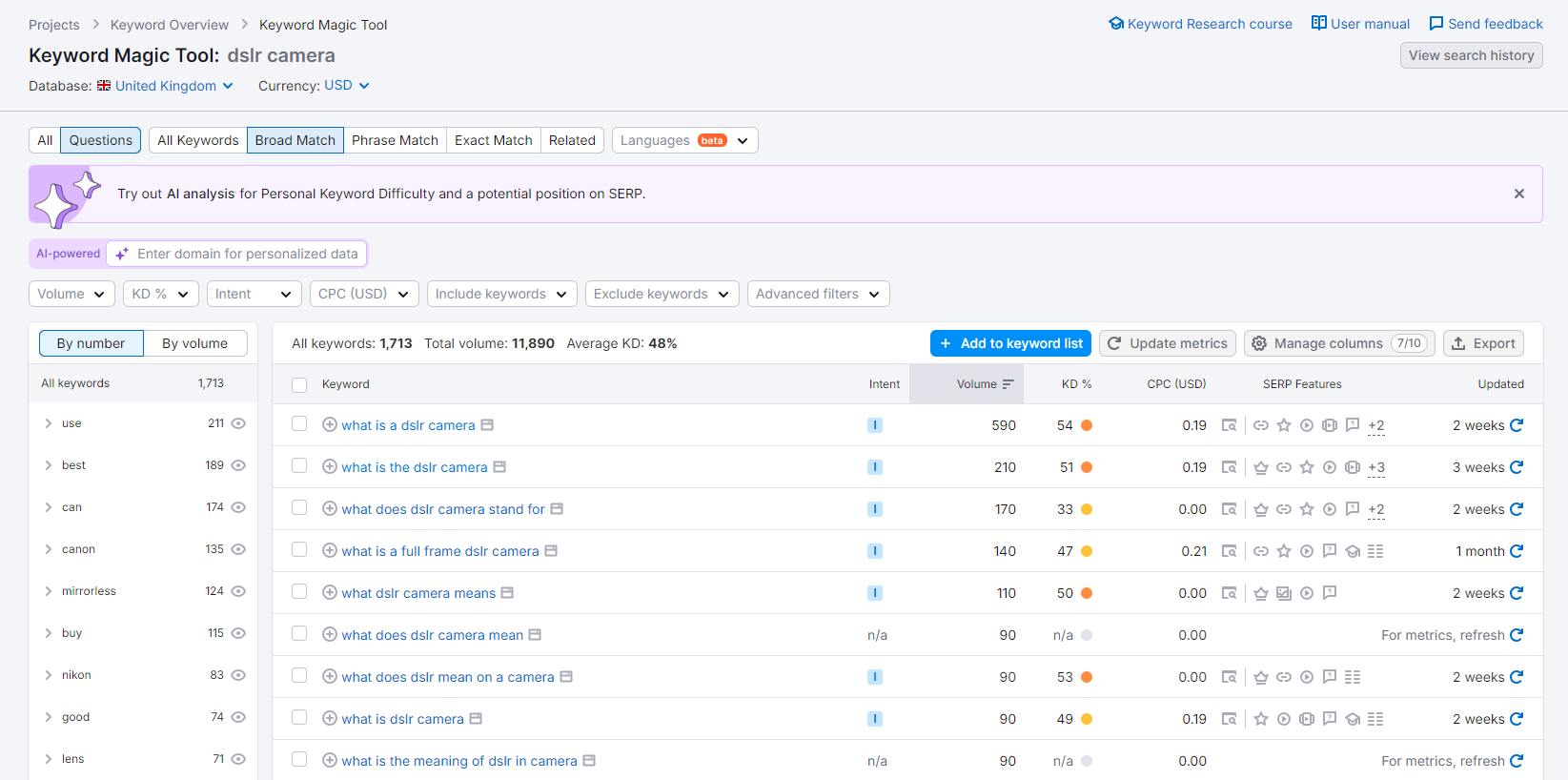
Competitor Keyword Analysis
One of the most effective affiliate marketing keyword research strategies is to analyse what's working for your competitors. This process involves researching the top keywords your main competitors are ranking for on SERPs that your site isn't.
A keyword research tool like Semrush is particularly useful for this task. Its Keyword Gap feature allows you to input your URL and top competitors to see a list of keywords they're ranking for, along with metrics like search volume and keyword difficulty.
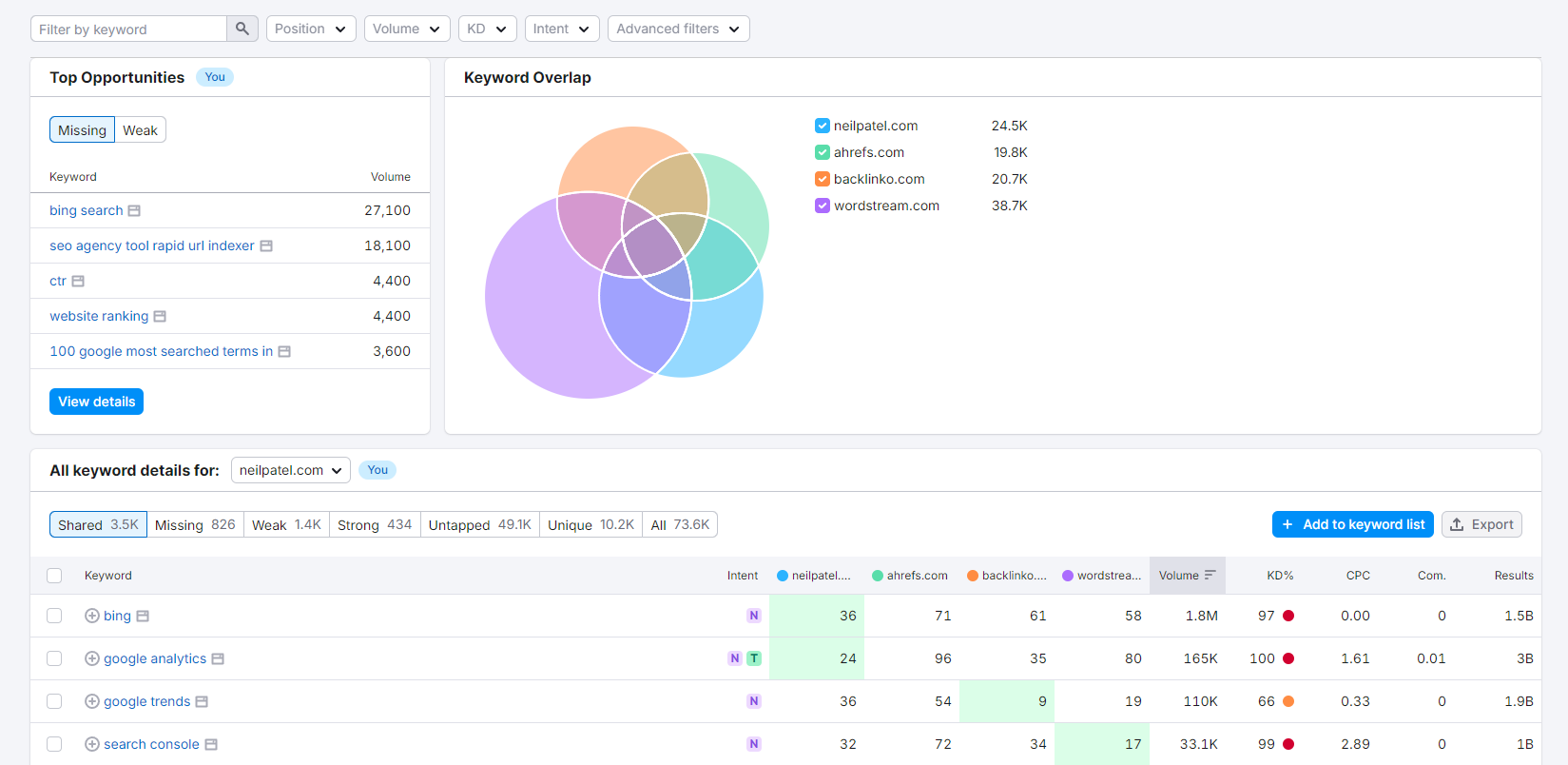
When conducting this analysis, pay close attention to keywords for which multiple competitors are ranking. These are likely to be valuable keywords in your niche. However, don't just focus on the high-volume, high-competition keywords. Look for keywords where your competitors are ranking well but which have relatively low competition. These could be opportunities to gain a foothold in the search results.
Another valuable aspect of competitor analysis is identifying keyword gaps. These are real keywords that your competitors aren't targeting or effectively targeting. These gaps represent opportunities for you to create content that fills a need in the market that isn't currently being met.
Monitoring and Adjusting Your Keyword Strategy
Several tools can help you track keyword performance. Google Search Console is an invaluable free resource that provides insights into which keywords drive traffic to your site. It shows you the search queries your pages are ranking for and metrics like impressions, clicks, and average position in search results.
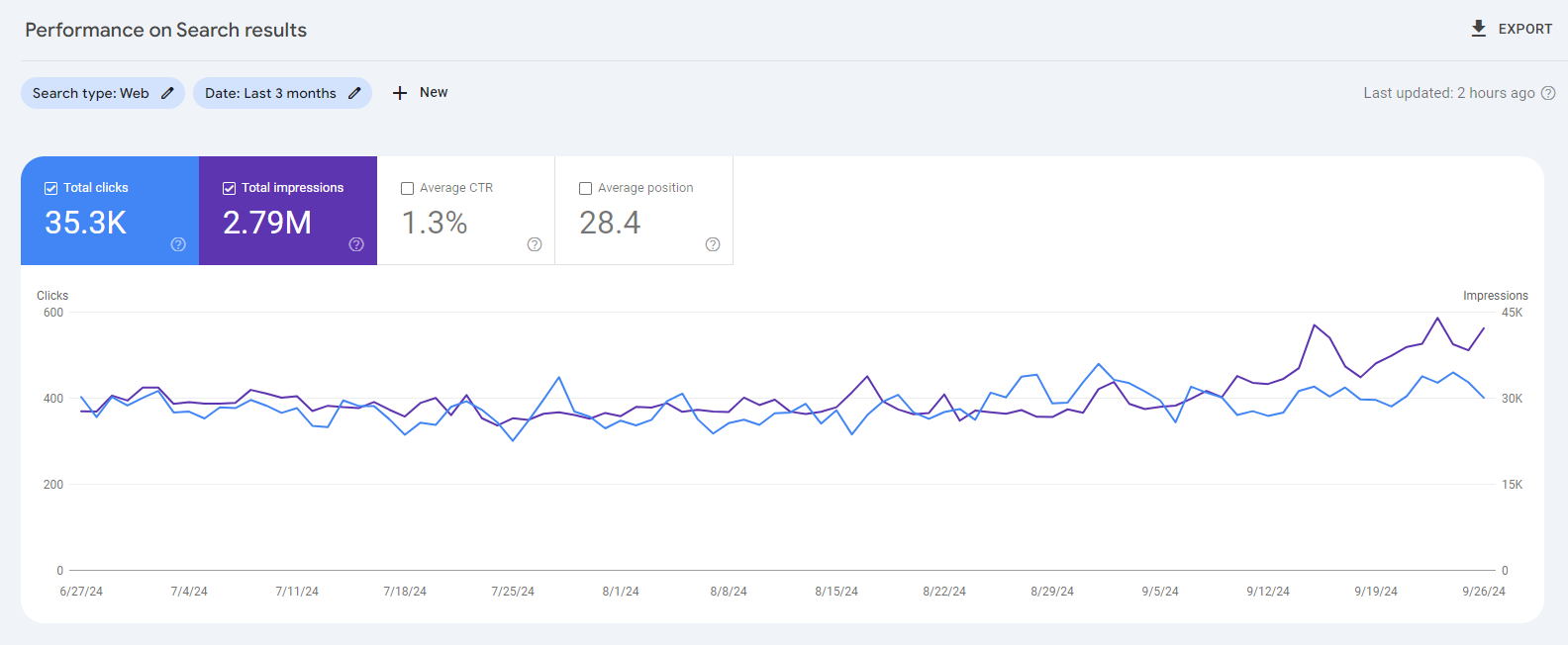
SEMrush and similar SEO tools offer more comprehensive keyword tracking features. These tools allow you to input specific keywords you want to monitor and will show you how your rankings change over time. They can inform you about new ranking opportunities or alert you if you fall behind on important keywords.
When monitoring keyword performance, consider more than just rankings. A keyword might be driving a lot of traffic, but if that traffic isn't converting, it may not be as valuable as a lower-volume keyword with a higher conversion rate
Updating and Expanding Your Keyword List
Finally, set aside time each month to review your keyword strategy and look for new keyword opportunities related to your niche.
Tools like Google Trends can help you identify rising search terms that you might want to target. Keep an eye on industry news and developments that might spark new search trends.
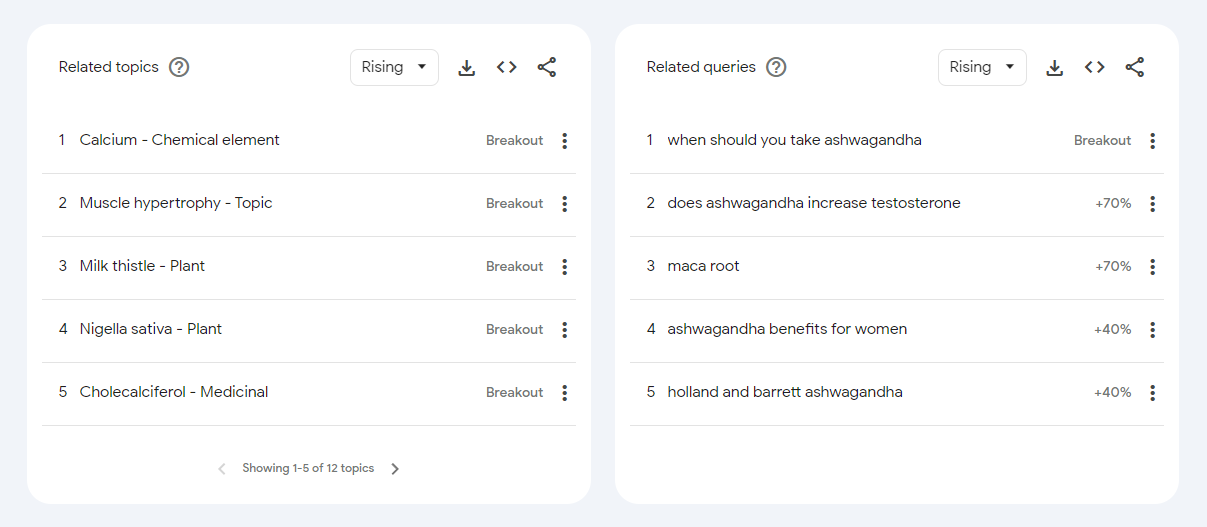
You can also use Google Trends to research how the changing seasons and annual events affect your niche's popularity.
For instance, if you operate in the fitness industry, you may consider focusing on keywords associated with New Year's resolutions in January or beach body workouts as summer approaches. It's crucial to consistently review and refresh your content with new keywords or information.
Search engines favour fresh, up-to-date content, so keeping your articles current can help maintain or improve your rankings. When updating your existing content, consider using tools like Frase and Surfer SEO to help you optimise your content using natural language processing (NLP) keywords, enabled you to cover the content comprehensively.
Finally, use ChatGPT to brainstorm out-of-the-box keyword ideas for your affiliate website. Enter a list of potential keywords you can optimise for your website and organise them according to clusters or silos.
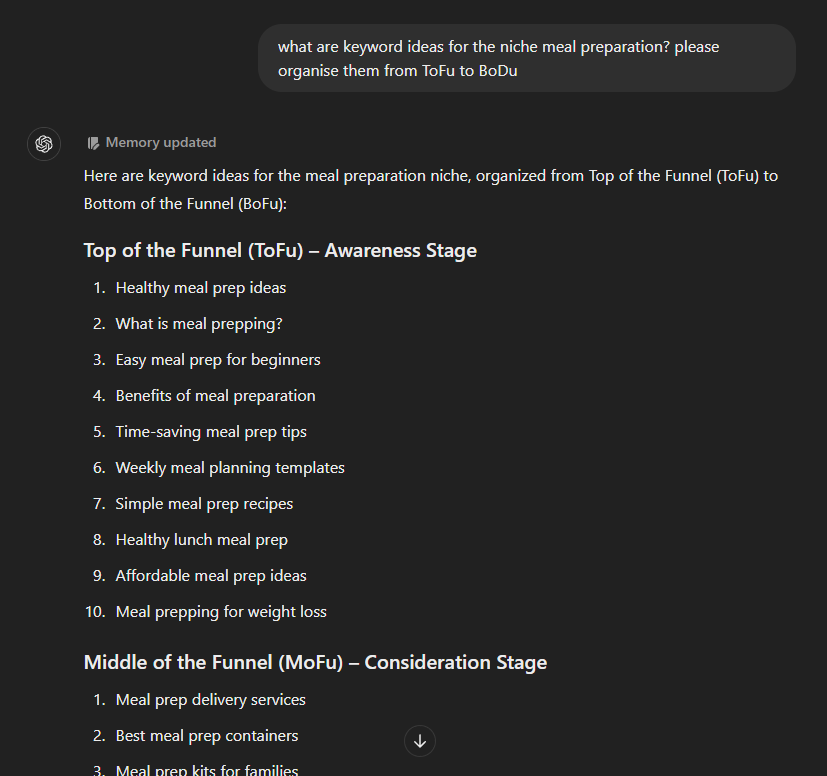
By arranging your affiliate keywords this way, you can help establish the topical relevance of your affiliate marketing, allowing you to generate more traffic and conversions in the process!
Power Up Your Affiliate Keyword Research with Our Help
As we wrap up this comprehensive guide on affiliate marketing keyword research, it's clear that this skill is crucial to enhancing your affiliate site's search engine rankings. However, you may need more than just knowledge to develop and execute effective keyword strategies.
At Charles Floate Training, our team, led by Charles Floate, has extensive experience in SEO and affiliate marketing. We have helped numerous marketers turn their ventures into profitable businesses. We offer SEO services and solutions to help grow your affiliate business and courses to help you level up your content strategy with effective keyword research.
Contact us now to schedule your consultation and take the first step towards mastering affiliate marketing keyword research. Your success story starts here!

